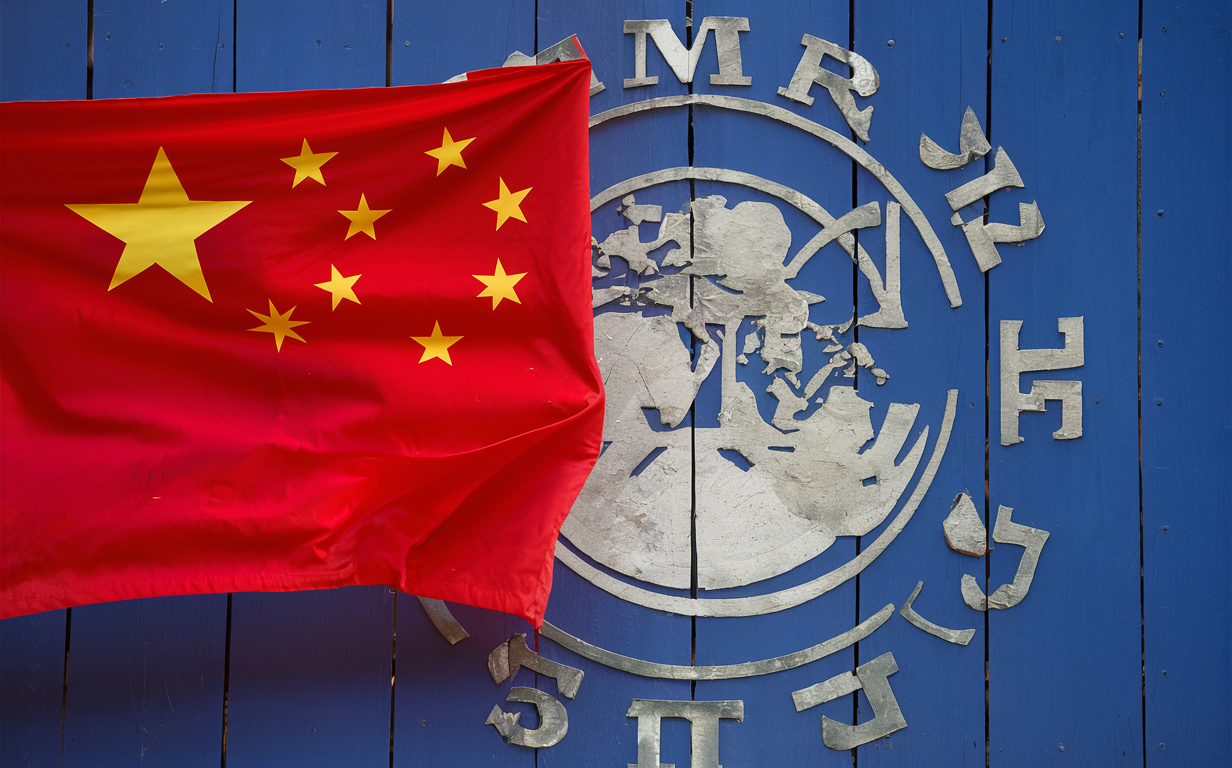Economy
Understanding the Latest Inflation Figures: Causes, Consequences, and the Fed’s Response

Introduction
Inflation, the rate at which the general level of prices for goods and services is rising, has been a topic of concern for economists and policymakers alike. Recently, the US inflation rate has risen to 2.5%, according to the Federal Reserve’s preferred measure, the Personal Consumption Expenditures (PCE) index. This figure is in line with economists’ expectations but remains above the central bank’s target of 2%. In this blog article, we will delve into the causes of this inflation rise, its impact on the economy, the Federal Reserve’s response, and the potential future implications.
Causes of Inflation:
- Supply Chain Disruptions: The COVID-19 pandemic has caused significant disruptions in global supply chains, leading to increased demand for goods and services.
- Fiscal Policy: Government spending and tax policies can influence inflation by increasing the demand for goods and services, leading to higher prices.
- Monetary Policy: The Federal Reserve’s actions, such as adjusting interest rates, can impact inflation by influencing the supply of money and credit in the economy.
Impact of Inflation on the Economy:
- Consumer Prices: Inflation directly affects the prices consumers pay for goods and services, potentially reducing their purchasing power.
- Interest Rates: Central banks, like the Federal Reserve, may adjust interest rates to control inflation, which can impact borrowing costs and economic growth.
- Economic Stability: High and persistent inflation can lead to economic instability, as businesses and consumers struggle to predict future prices.
Fed’s Response to Inflation:
- Interest Rate Adjustments: The Federal Reserve has the ability to adjust interest rates to control inflation, which can impact borrowing costs and economic growth.
- Communication: The Fed communicates its monetary policy decisions and future expectations to the public, which can influence market expectations and economic behavior.
- Inflation Targets: The Fed has set a target inflation rate of 2%, which it aims to maintain over the long term.
Future Implications of Inflation:
- Monetary Policy: The Fed’s response to inflation will depend on its assessment of the current economic situation and future expectations.
- Economic Growth: High and persistent inflation can negatively impact economic growth, as businesses and consumers may reduce spending and investment due to uncertainty.
- Policy Coordination: Central banks, governments, and international organizations may need to coordinate their policies to address inflation and promote economic stability.
Conclusion
The recent rise in US inflation to 2.5% is a cause for concern, as it remains above the Federal Reserve’s target. Understanding the causes of this inflation, its impact on the economy, and the Fed’s response is crucial for policymakers and investors alike. By addressing these issues, we can work towards maintaining economic stability and promoting sustainable growth.
Crypto
Bitcoin Rebounds from Slump Triggered by Iran’s Attack on Israel: Analyzing Market Sentiment and Investor Reactions

Table of Contents
Introduction
On April 13, 2024, Bitcoin experienced a significant price drop following the escalation of tensions between Iran and Israel. The attack on Israel by Iran led to a sharp decline in the price of Bitcoin, causing concern among investors and market analysts. However, the cryptocurrency market has shown resilience, with Bitcoin rebounding from the slump, indicating a potential recovery in the market. In this blog article, we will analyze the impact of the geopolitical event on Bitcoin’s price, market sentiment, and investor reactions.

Impact on Bitcoin Price
The attack on Israel by Iran led to a significant drop in the price of Bitcoin, with the cryptocurrency experiencing a sharp decline in its value. According to CoinMarketCap, the price of Bitcoin dropped from $25,987.73 to $24,427.20 within a few hours of the news. This decline can be attributed to the uncertainty and fear among investors, as geopolitical events can have a significant impact on the global economy and financial markets.
Market Sentiment
The sudden drop in Bitcoin’s price led to a wave of panic among investors, causing a shift in market sentiment. According to data from CoinMarketCap, the market sentiment for Bitcoin shifted from “Neutral” to “Negative” within hours of the news. This change in sentiment can be attributed to the fear of potential economic instability caused by the geopolitical event.
Geopolitical Events and Bitcoin
Geopolitical events have a significant impact on the cryptocurrency market, particularly on the price of Bitcoin. In recent years, we have seen how events such as the Russia-Ukraine conflict, the COVID-19 pandemic, and the ongoing US-China trade war have affected the cryptocurrency market. The attack on Israel by Iran is just another example of how geopolitical events can cause volatility in the market.
Investor Reactions
The sudden drop in Bitcoin’s price led to a wave of panic among investors, causing some to sell their holdings in a bid to minimize their losses. However, other investors saw this as an opportunity to buy Bitcoin at a lower price, believing that the cryptocurrency would recover in the long run. This divergence in investor reactions highlights the inherent volatility of the cryptocurrency market and the importance of understanding market sentiment and geopolitical events.
Recovery and Future Outlook
Despite the initial decline, Bitcoin has shown resilience and has started to recover from the slump. As of the time of writing, the price of Bitcoin has rebounded to $25,537.95, indicating a potential recovery in the market. However, the long-term outlook for Bitcoin remains uncertain, as the cryptocurrency market is heavily influenced by geopolitical events and market sentiment.
Conclusion
The attack on Israel by Iran led to a significant drop in the price of Bitcoin, causing panic among investors and uncertainty in the market. However, the cryptocurrency has shown resilience and has started to recover from the slump. As we move forward, it is essential to monitor geopolitical events and market sentiment to understand the potential impact on the cryptocurrency market.
China
Navigating the Economic Transformation: China’s Future Depends on Microeconomic Policies

Introduction
China’s economic growth has been a significant global phenomenon, with its rapid expansion driving global trade and shaping the global economy. However, as China enters a new phase of its economic development, it faces challenges that require a shift in focus from macroeconomic stimulus to microeconomic policies. This article explores the importance of microeconomic policies in China’s future economic growth and the implications for businesses and markets.

I. The Limitations of Macroeconomic Stimulus
- Temporary Boost: Macroeconomic stimulus, such as government spending and monetary policy, can provide a temporary boost to the economy. However, it does not address the underlying structural issues that hinder long-term growth.
- Amplifying Economic Shortcomings: Macroeconomic stimulus can exacerbate economic imbalances and inefficiencies, leading to a more significant correction in the future.
II. The Importance of Microeconomic Policies
- Structural Reforms: Microeconomic policies focus on structural reforms that address the root causes of economic challenges. These reforms can include labor market reforms, regulatory changes, and infrastructure investments.
- Encouraging Business Transformation: Microeconomic policies can create an environment that encourages businesses to transform and adapt to changing market conditions. This can lead to increased productivity, innovation, and competitiveness.
III. The Role of Businesses in China’s Economic Transformation
- Adapting to Market Changes: As China’s economy evolves, businesses must adapt to new market conditions and consumer preferences. This may involve shifting from traditional industries to more innovative and technology-driven sectors.
- Embracing Innovation: To prosper in the new economic environment, businesses must embrace innovation and technological advancements. This can include investing in research and development, adopting new technologies, and fostering a culture of innovation.
IV. Implications for Markets and Investors
- Changing Market Dynamics: As China’s economic focus shifts from macroeconomic stimulus to microeconomic policies, market dynamics will change. Investors should be prepared for a more volatile and uncertain market environment.
- Opportunities for Investors: The shift to microeconomic policies presents opportunities for investors in sectors that benefit from structural reforms and business transformation. These may include technology, healthcare, and environmental sectors.
Conclusion
China’s future economic growth depends on its ability to navigate the complex transition from macroeconomic stimulus to microeconomic policies. This requires a focused effort on structural reforms, business transformation, and a shift towards innovation and technology. As China embarks on this transformation, businesses and investors must adapt to the changing market conditions and seize the opportunities presented by the new economic environment.
China
China Calls for Critical IMF Reforms to Reflect Asian Economic Prowess

The People’s Bank of China governor, Pan Gongsheng, has called for “critical” reforms to the International Monetary Fund (IMF) to better reflect the weight of emerging markets and Asian countries. Speaking at the Boao Forum for Asia on Wednesday, Gongsheng highlighted the need for established international institutions to adapt to the changing global economic landscape. He also appealed to central bank officials from Indonesia, Singapore, and Mongolia to work together to achieve this goal.

Gongsheng’s comments come as China seeks to assert its economic prowess on the global stage. The country has become increasingly vocal in its calls for reform of international institutions, arguing that they are outdated and do not reflect the changing balance of economic power. As the world’s second-largest economy, China believes it should have a greater say in the governance of these institutions.
The governor’s appeal for a collective Asian voice in IMF reforms is likely to be welcomed by other emerging market countries in the region. Many have long argued that the current system is biased towards developed countries and does not take into account the unique challenges faced by emerging markets. By working together, Asian countries could have a greater influence on the direction of global economic policy.
Table of Contents
China’s Call for IMF Reforms

Pan Gongsheng’s Address at Boao Forum
The People’s Bank of China governor, Pan Gongsheng, addressed the Boao Forum for Asia on Wednesday, calling for critical reforms to established international institutions such as the International Monetary Fund (IMF). He urged central bank officials from Indonesia, Singapore and Mongolia to work together to reflect the weight of Asian countries and emerging markets.
Need for Institutional Reform
Gongsheng’s appeal for reform comes as China and other emerging markets seek to have a greater say in global economic governance. He argued that the current global financial system does not adequately reflect the economic prowess of emerging markets, and that the IMF in particular needs to be reformed to better reflect the changing global economic landscape.
Gongsheng’s call for IMF reforms is not new, but it comes at a time when China is seeking to assert itself as a global economic power. China has been pushing for greater representation in the IMF and other international financial institutions, arguing that the current system is dominated by Western powers and does not adequately represent the interests of emerging markets.
Overall, Gongsheng’s speech highlights the growing importance of Asia and emerging markets in the global economy, and the need for established international institutions to adapt to reflect this changing reality.
Asian Collective Voice

Central Banks Collaboration
At the Boao Forum for Asia, Pan Gongsheng, the governor of People’s Bank of China, called for central banks from Indonesia, Singapore, Mongolia and other emerging Asian countries to collaborate and reflect the weight of Asian countries. He emphasized that established international institutions are in need of reform to mirror the economic prowess of emerging markets.
Collaboration between central banks can lead to more effective policies and strategies that can benefit the entire region. This can also increase the influence of Asian countries on the global stage and help shape the direction of the global economy.
Reflecting Asian Economic Weight
Pan Gongsheng’s call for reform reflects the growing economic weight of Asian countries and the need for established institutions to reflect this reality. The economic growth of Asia has been significant in recent years, and this trend is expected to continue in the future.
Reforms to international institutions can help address the challenges faced by emerging markets and promote sustainable economic growth. By reflecting the economic weight of Asian countries, these institutions can ensure that policies and strategies are more inclusive and effective.
In conclusion, the collaboration of central banks and the reflection of Asian economic weight in international institutions are crucial steps towards a more balanced and sustainable global economy.
-

 Featured3 years ago
Featured3 years agoThe Right-Wing Politics in United States & The Capitol Hill Mayhem
-

 Elections 20242 months ago
Elections 20242 months agoAnalyzing Trump’s Super Tuesday Triumph and Nikki Haley’s Strategic Moves
-

 News2 years ago
News2 years agoPrioritizing health & education most effective way to improve socio-economic status: President
-

 China3 years ago
China3 years agoCoronavirus Pandemic and Global Response
-

 Canada3 years ago
Canada3 years agoSocio-Economic Implications of Canadian Border Closure With U.S
-

 Conflict3 years ago
Conflict3 years agoKashmir Lockdown, UNGA & Thereafter
-

 Democracy3 years ago
Democracy3 years agoMissing You! SPSC
-

 Democracy3 years ago
Democracy3 years agoPresident Dr Arif Alvi Confers Civil Awards on Independence Day
























